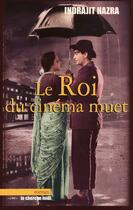-
Nombre de pages : (-)
-
Collection :
(-)
-
Genre :
(-)
-
Thème :
Non attribué
-
Prix littéraire(s) :
(-)
Résumé:
As Calcutta's star begins to fade, with the capital of His Majesty's India shifting to Delhi, Abani Chatterjee's is on the rise. He is well on his way to becoming the country's first silent-screen star. But just as he is about to find fame and adulation, absurd personal disaster-'a recurrent... Voir plus
As Calcutta's star begins to fade, with the capital of His Majesty's India shifting to Delhi, Abani Chatterjee's is on the rise. He is well on his way to becoming the country's first silent-screen star. But just as he is about to find fame and adulation, absurd personal disaster-'a recurrent phenomenon in the Chatterjee household-'strikes, and Abani becomes a pariah in the world of the bioscope. In a city recently stripped of power and prestige, and in a family house that is in disrepair, Abani spins himself into a cocoon of solitude and denial, a talent he has inherited from both his parents. In 1920, German director Fritz Lang comes calling, to make his 'India film' on the great eighteenth-century Orientalist Sir William Jones. When Abani is offered a role, he convinces Lang to make a bioscope on Pandit Ramlochan Sharma, Jones's Sanskrit tutor, instead. Naturally, Abani plays the lead. The result is The Pandit and the Englishman, a film that mirrors the vocabulary of Abani's life, hinting at the dangers of pretence and turning away, the virtues of lying and self-deception, the deranging allure of fame and impossible affections. Afterwards, Abani Chatterjee writes a long letter, in which he tells his story. Witty, at times dark, and always entertaining, The Bioscope Man is that story.
Donner votre avis















